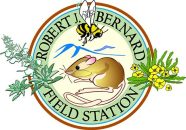Pearson, Senanu (1998)
Genetic Effects of Isolation and Fragmentation on Pacific Kangaroo Rats (Dipdomys agilis), in Claremont, California.
Bachelor of Arts, Pomona College, Biology.
Advisor: Frances Hanzawa.
Urbanization in the Los Angeles metropolitan region has led to diminished area and increased fragmentation of coastal sage scrub habitat suitable for Pacific kangaroo rats (Dipodmys agilis). Genetic isolation of small populations can lead to a reduction of genetic variability as measured at the populations level. In this study, I investigated the extent to which inbreeding and genetic drift occur in Pacific kangaroo rats in two potentially separated subpopulations relative to a population with a large contiguous habitat. I used cellulose acetate electrophoresis of blood plasma and hemolysate to determine levels of heterozygosity for the two populations. Data suggest that of five loci, two are monomorphic, two are polymorphic with an unknown number of alleles, and one, esterase, has four alleles. Heterozygosity measured at this locus is lower than expected under Hardy-Weinberg equilibrium. The inbreeding coefficients for the two small populations (F=0.60 and F=0.13) are considerably greater than for the large populations (F=-0.17) and genetic drift does not contribute to lower heterozygosity in the small populations (FST=0.02). Isolation appears to have resulted in genetic impoverishment through allele loss and reduction of heterozygosity which may negatively affect persistence time of the populations.
